Hygiene and cleanliness are of utmost importance during this time of COVID-19. This means not only washing your hands properly with soap and water but having other ways of sanitising in case you don’t have access to soap. Hand sanitisers are common items that are very popular in being the next line of defence.
During this trying period, you’ll be staying indoors a lot, so you’ll have to ensure your indoor air quality is high. Air purifiers are one way of doing so, and may have the added benefit of cleaning the Covid-19 virus from the air although this is not confirmed yet.
This article first talks about hand sanitisers before going to talk about air purifiers.
Trying to find out about the history of hand sanitisers? We have the article for you!
What is hand sanitiser?
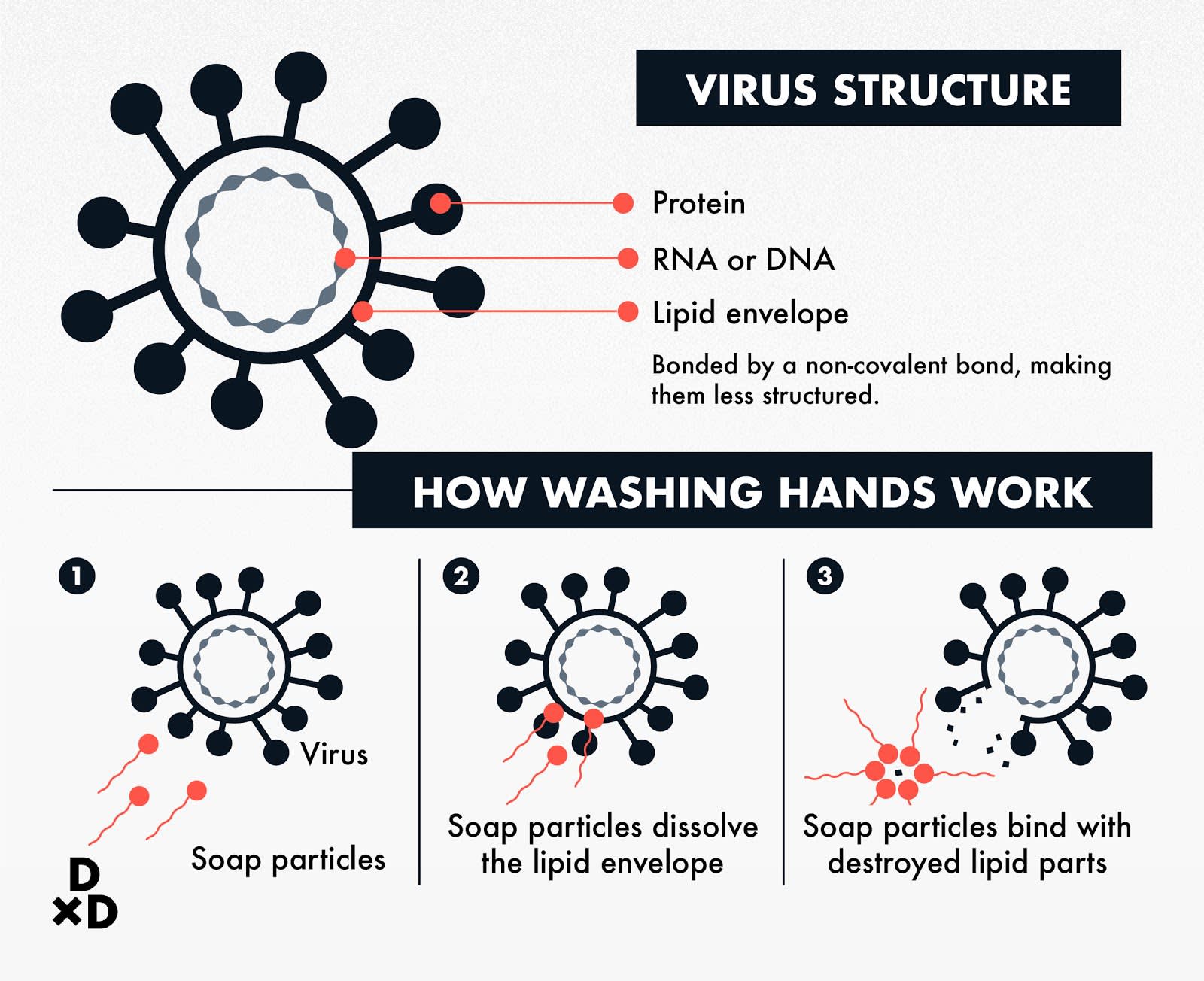
Hand sanitiser is a liquid or gel that is used to reduce the number of bacteria or viruses on the hands. There are 2 types of hand sanitisers, alcohol-based sanitisers and non-alcohol based sanitisers.
Alcohol-based sanitisers
Alcohol-based sanitisers can contain either or up to 2 of isopropanol, ethanol, and n-propanol. Different sanitisers have different alcohol content, although the minimum effective dosage is 60%. There are 95% alcohol hand sanitisers that are used in hospitals. [1] This type of hand sanitiser destroys the envelope protein of the coronavirus, which is the outer layer of the virus that latches on to cells. By destroying the envelope protein, the coronavirus cannot function as it normally does and will fail to reproduce [2].
Non-alcohol sanitisers
Non-alcohol sanitisers, based on water, use an ingredient called benzalkonium chloride to replace the alcohol. While these types of sanitisers are gentler on the skin as they do not dry the skin out, they are also less effective at killing germs or viruses [3]. In this article, I will be focusing on alcohol-based sanitisers.
How does hand sanitiser differ from soap and water in killing the Coronavirus?
Alcohol-based sanitisers are not as effective as soap and water in killing certain viruses. This study found that alcohol was not as effective in protecting against H1N1 influenza [4], while this one showed that soap and water were better at removing bacteria [5].
To understand why soap and water work so well against the Coronavirus, you need to understand how the virus is structured. A virus is made of 3 things:
- Genetic material, such as RNA or DNA
- Protein that protects the genetic material and assists in virus replication when in a host
- A layer of fat called a lipid.
You also need to understand that chemicals are bound together either through ‘covalent’ bonds, or ‘non-covalent’ bonds. You only need to understand that covalent bonds provide more structure than non-covalent ones.
The 3 parts of the virus above are bound by non-covalent bonds, so they are not very structured. Soap dissolves the outer layer of lipids, the outer component of the virus, and breaks these non-covalent bonds so the virus falls apart. Soap works by binding with outer fatty lipid layer and disconnects them forcibly from the virus.
However, this breaking down takes time, which is why you are advised to wash your hands for at least 20 seconds. There is currently a variety of material that lists out what songs you can sing to measure an approximate 20 seconds. This will also dislodge the virus from your skin so that they are not stuck any longer [6]. This ability to dislodge the virus is also why you should wash with soap and water when there is dirt on your skin. In the same way, it removes the virus, it also removes dirt effectively.
However, if there is no soap available, hand sanitiser can be a way of reducing infection risks quickly.
How long does the virus last on surfaces? Find out in our question and answer forum!
What are the different kinds of hand sanitiser out there?
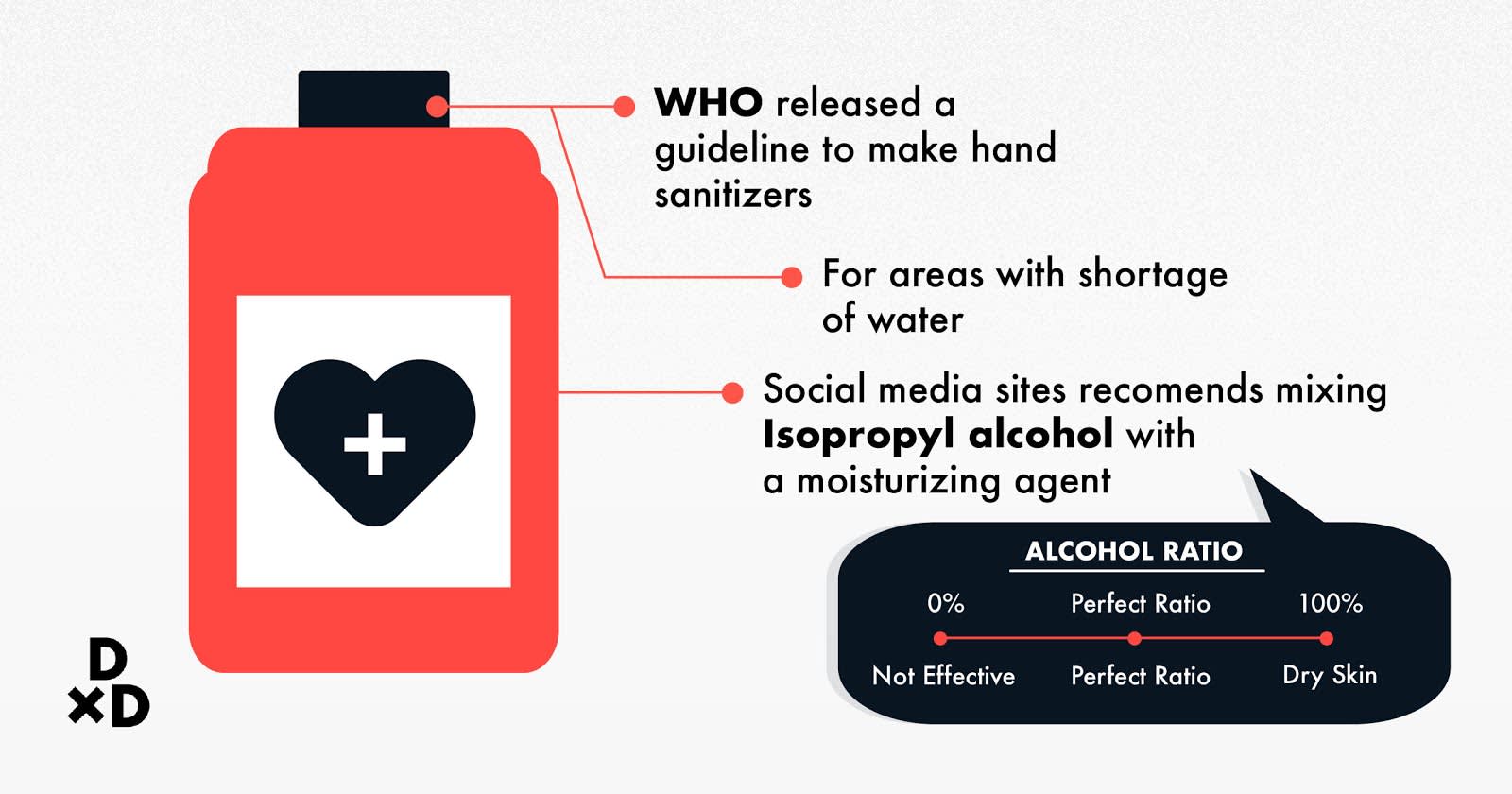
There are many different brands of hand sanitisers available. The alcohol-based sanitisers share the common ingredients mentioned at the start of this article. What differentiates them from one another is the type of ingredients they have inside that affect quality of life, such as not drying out your hands as much as others, or having higher alcohol content than usual.
Can I make my own hand sanitiser?
Since the coronavirus outbreak, there has been a surge in demand for hand sanitisers, with it being out of stock constantly. In this situation, it might be tempting to try to make your own hand sanitiser. There is even an official WHO guideline for making hand sanitiser, but this is for areas without access to clean water or are lacking in supplies. It assumes that you are a professional and know how to handle the materials you need [7].
There are recipes from social media sites that recommend mixing some form of isopropyl alcohol with a moisturising agent so your skin doesn’t dry out, usually aloe vera. However, you cannot control the chemical reactions when mixing the ingredients together and there is no guarantee that your results will work. Too little aloe vera and your creation can cause your skin to crack and bleed. Too little alcohol and the mixture is not as effective as simply washing with soap and water [8].
If you cannot find isopropyl, you might be tempted to use commercial alcohol products such as vodka, but these contain too little alcohol to be effective and there may be side effects when mixed with other items.
What if you have a sore throat? Don't worry, find out what you should do here!
What is Schulke?
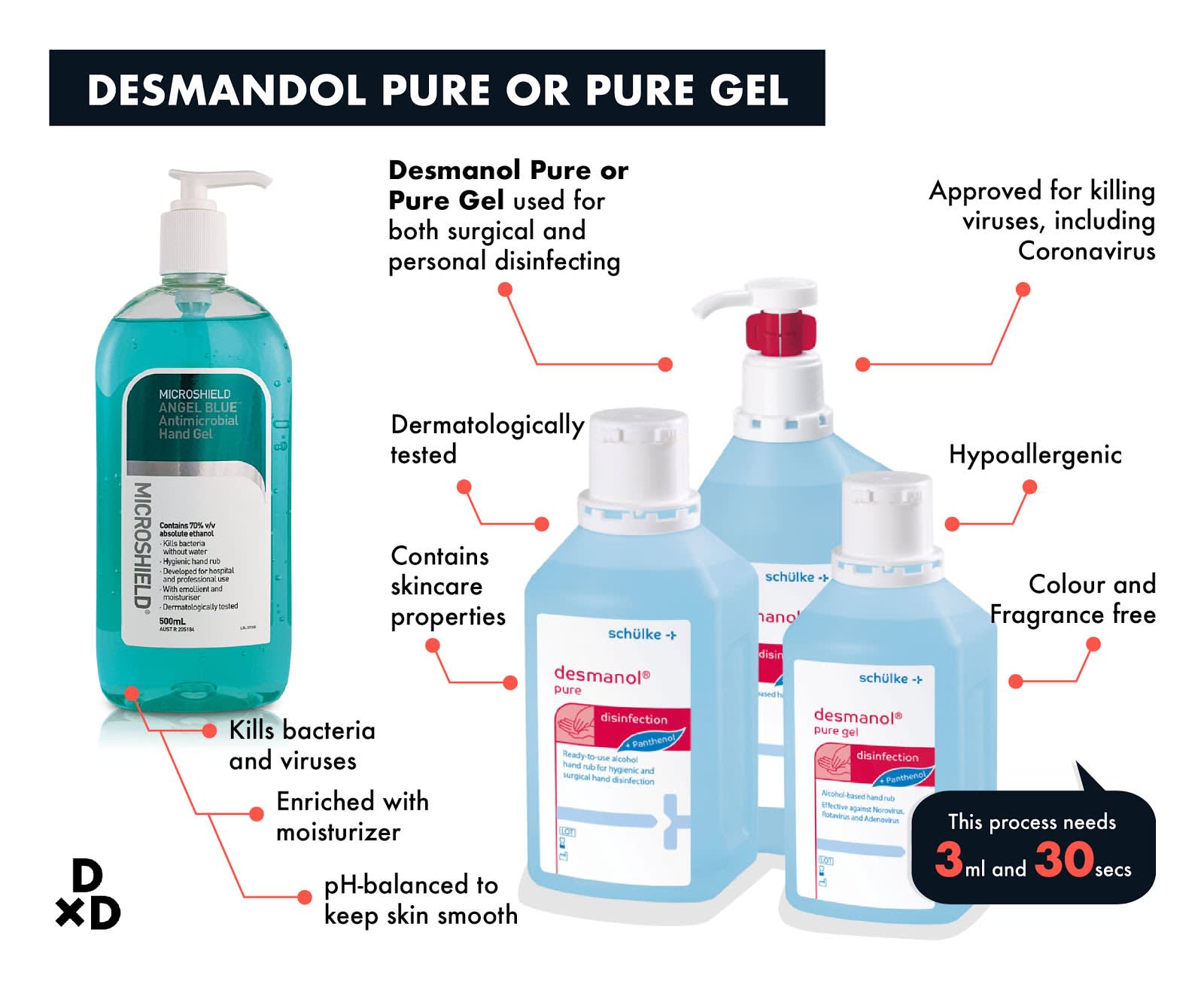
Schulke is a German company that specialises in hygiene, for personal, hospital, and industrial use. They have been in business for 130 years and have been at the front lines tackling issues like antibiotic resistance. With its emphasis on prevention rather than cure, Schulke has made hand sanitisers for many years, improving their formula to stand out from its competition.
Why should I care about the hand sanitisers Schulke makes?
There are 2 products I want to talk about today, and one of these products come as both an alcoholic rub and gel form, called ‘Desderman pure’ and ‘Desderman pure gel’ respectively. The other product is a hand sanitiser called Microshield Angel Blue.
Desderman pure/pure gel is an alcoholic rub that is used for both personal and surgical disinfecting. It is an approved product for killing viruses, including the Coronavirus. It is also relatively non-toxic and you only need 3ml, just a small squeeze, to rub without washing. After 30 seconds, most bacteria and viruses, including the Coronavirus, will be destroyed.
The desderman pure/pure gel is colour and fragrance-free (Hypoallergenic) so that people who are allergic to colour dyes or fragrances can use it. It is dermatologically tested and has skincare properties made through rigorous amounts of testing. There are also different sizes, from a small 100ml bottle you can carry anywhere, to a 500ml bottle for your backpack, to 1L bottles that you can place at home for your whole family to use.
Microshield Angel Blue, similar to the Desderman pure/pure gel, is formulated to kill bacteria and viruses, including against the Coronavirus. It has been enriched with moisturiser and is ph-Balanced so that your skin remains smooth and hydrated while still keeping its acidity intact. It is available in a 500ml bottle so that you can use it with your partner.
Hand sanitisers may help prevent the spread of Pneumonia, but if you're already down with the illness, you can read up on how Pneumonia is treated here.
What else can I do if I am home?
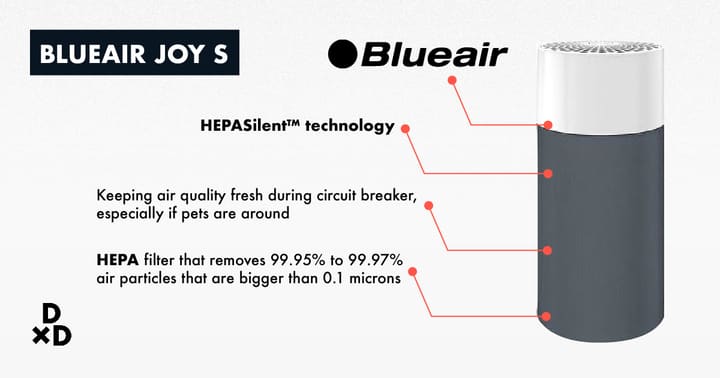
So you’ve washed your hands with soap and water at home. That doesn’t mean you’re safe. During this Circuit Breaker period, you’ll be spending a lot of time at home. You may turn on the air conditioner when it's too hot or have to close the windows when it rains. This means that your indoor air quality may drop over time, leading to a greater risk of illness. What can you do?
You can use an air purifier to filter the air around you. Air purifiers are devices that work to clean the air of contaminants and improve indoor air quality. The device contains layers of filters that only allow objects of a certain size to pass through. HEPA (High-Efficiency Particulate Air) filters are one such technology that must remove 99.95% to 99.97% of particles in the air that are at or larger than 0.3 microns. This is usually the case for most HEPA technology.
However, Blueair Joy uses Blueair’s own proprietary technology to filter out particles that are larger than 0.1 microns. A test by the CAS Test Technical Services found that Blueair Classic, Blueair Joy’s cousin, removed 99.99% of common viruses and bacteria, including E. Coli, Swine Flu, and Enterovirus, although it has not been tested on the coronavirus.
What the Blueair Joy can do is filter air and increase indoor air quality, including exhausts, dust, and bacteria. An air purifier can be useful if you keep pets that shed fur in the house as they may shed other unwanted pests along with it [8]. Keeping your indoor air quality fresh is important during this circuit breaker period as you will be spending a lot of time indoors. This can reduce your chances of falling sick with or without the coronavirus.
Blueair Joy is built on top of Blueair Classic, and has an advanced filter that has layers of ultrathin fibres of different sizes. It uses the aforementioned HEPASilent™ technology, which uses mechanical and electrostatic filtration to catch all the particles it can. It comes in 5 different colours for you to choose from and has a plug-and-play approach, with an inbuilt alarm to tell you when the filters need changing.
Conclusion
Hand Sanitisers are important tools that you can use to reduce your exposure to the deadly virus. Make sure you buy alcohol-based sanitisers with at least 60% alcohol to kill the virus. Finally, do not try to make your own sanitiser. You can and should turn to professional products such as Schulke’s Desderman pure/pure gel and Microshield Angel Blue sanitisers. This will not only save you time, it will save you money and provide certainty that your product is both safe for your skin and virucidal.
Some air purifiers are not good enough for capturing viruses in your room. However, it can increase indoor air quality, which is important during this Circuit Breaker period.
Do exercise caution and wash your hands whenever you can to prevent the spread!
Brought to you by Schulke and Blueair. Schulke donated 800 hand sanitisers to Singapore Expo’s Community Isolation Facility. Blueair donated 100 air purifier units to Singapore Expo’s Community Facility.
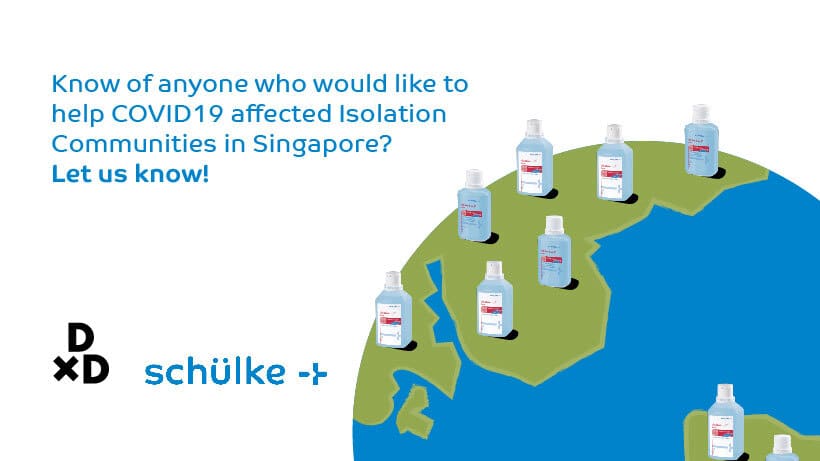
Reach out to partner and collaborate with us: +65 88223554
Dr Paul Ang founded the Zenith Medical Clinic at Punggol West in 2014. With a keen interest to improve the delivery of General Practitioner (GP) services, Dr Ang aims to bring great, quality, affordable healthcare to the residents in Punggol, Singapore.
Get this article as a 6 page pdf here!

